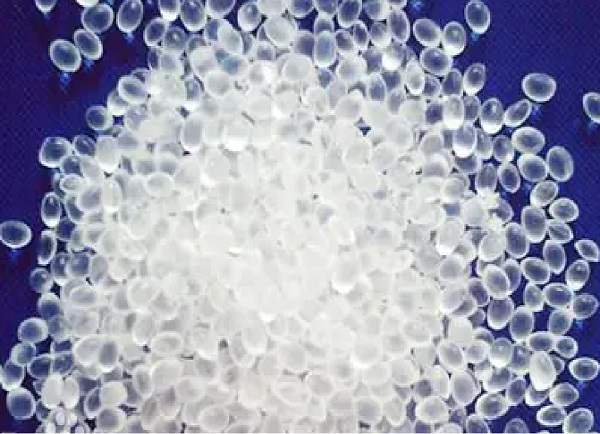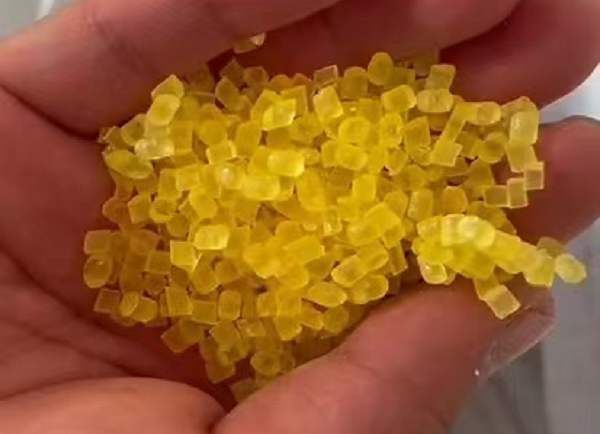Generally speaking, SBS modification of bitumen requires three processes: swelling, shearing (or grinding), and development.
For the SBS modified bitumen system, there is a close relationship between swelling and compatibility. The size of the swelling directly affects the compatibility. If SBS swells infinitely in the bitumen, the system becomes completely compatible. The swelling behavior is closely related to the production, processing technology and high-temperature storage stability of modified bitumen. As the temperature increases, the swelling rate accelerates significantly, and the swelling is obvious at the melt processing temperature higher than the glass transition temperature of PS of SBS. In addition, the structure of SBS has a significant impact on the swelling behavior: the swelling speed of star-shaped SBS is slower than that of linear SBS. Relevant calculations show that the density of SBS swelling components is concentrated between 0.97 and 1.01g/cm3, which is close to the density of aromatic phenols.

Shearing is a key step in the entire modification process, and the effect of shearing often affects the final result. The colloid mill is the core of the modified bitumen equipment. It operates in a high-temperature and high-speed environment. The outer layer of the colloid mill is a jacket structure with a circulation insulation system. It also plays the role of shock absorption and noise reduction. The inside of the colloid mill is The annular moving disc and the annular fixed disc with a certain number of tooth slots are used to grind the knives. The gap can be adjusted. The uniformity of the material particle size and the peptization effect are determined by the depth and width of the tooth slots, the number of sharpening knives, and the specific work of forming the structure. determined by region. As the moving plate rotates at high speed, the modifier is continuously dispersed by strong shear and collision, grinding the particles into fine particles, and forming a stable miscible system with bitumen to achieve the purpose of uniform blending. After full swelling, SBS and bitumen are mixed evenly. The smaller the grinding particles, the higher the degree of dispersion of SBS in bitumen, and the better the performance of the modified bitumen. Generally, in order to achieve better results, grinding can be carried out multiple times.
The production of modified bitumen finally goes through a development process. After grinding, the bitumen enters the finished product tank or development tank. The temperature is controlled at 170-190°C, and the development process is carried out for a certain period of time under the action of a mixer. In this process, some kind of modified bitumen stabilizer is often added to improve the storage stability of the modified bitumen. Current status of SBS modified bitumen production technology

1. China produces approximately 8 million tons of SBS modified bitumen for roads every year, and the best production and application technology is in China. Be wary of false and distorted propaganda from the comprador class;
2. After nearly 60 years of development, the technology of SBS modified bitumen has reached the ceiling at this stage. Without revolutionary breakthroughs, there will be no technology left;
Third, it is nothing more than repeated adjustments and trial mixing of four materials: base bitumen, SBS modifier, blending oil (aromatic oil, synthetic oil, naphthenic oil, etc.), and stabilizer;
3. Driving a luxury car has nothing to do with driving skills. Imported mills and high-end equipment do not represent the level of modified bitumen technology. To a large extent, they are just showing off capital. In terms of stable indicators, especially to ensure new standard technical indicators, grinding-free production like Rizhao Keshijia can be more guaranteed;
4. State-owned enterprises such as Provincial Communications Investment and Control have arranged for the production and processing of SBS modified bitumen, and they have been state-owned. The scale is huge. In addition to competing for profits with the people, they cannot represent advanced or new productivity;
5. There is an urgent need to develop online monitoring technology and instruments to make the process controllable;
6. In the Red Sea market, profits are unsustainable, which has given rise to many "trinitrile amine" modifications.

